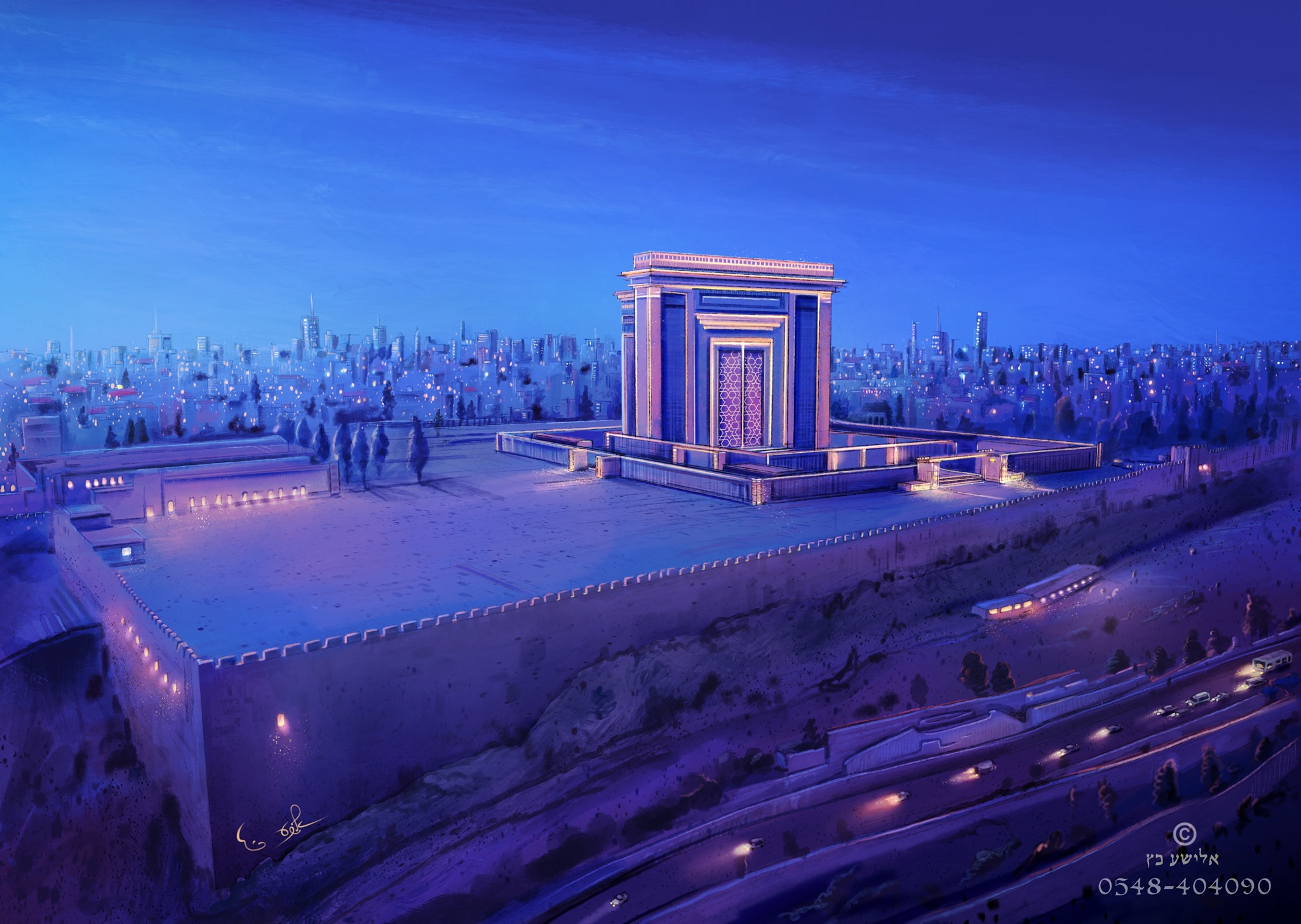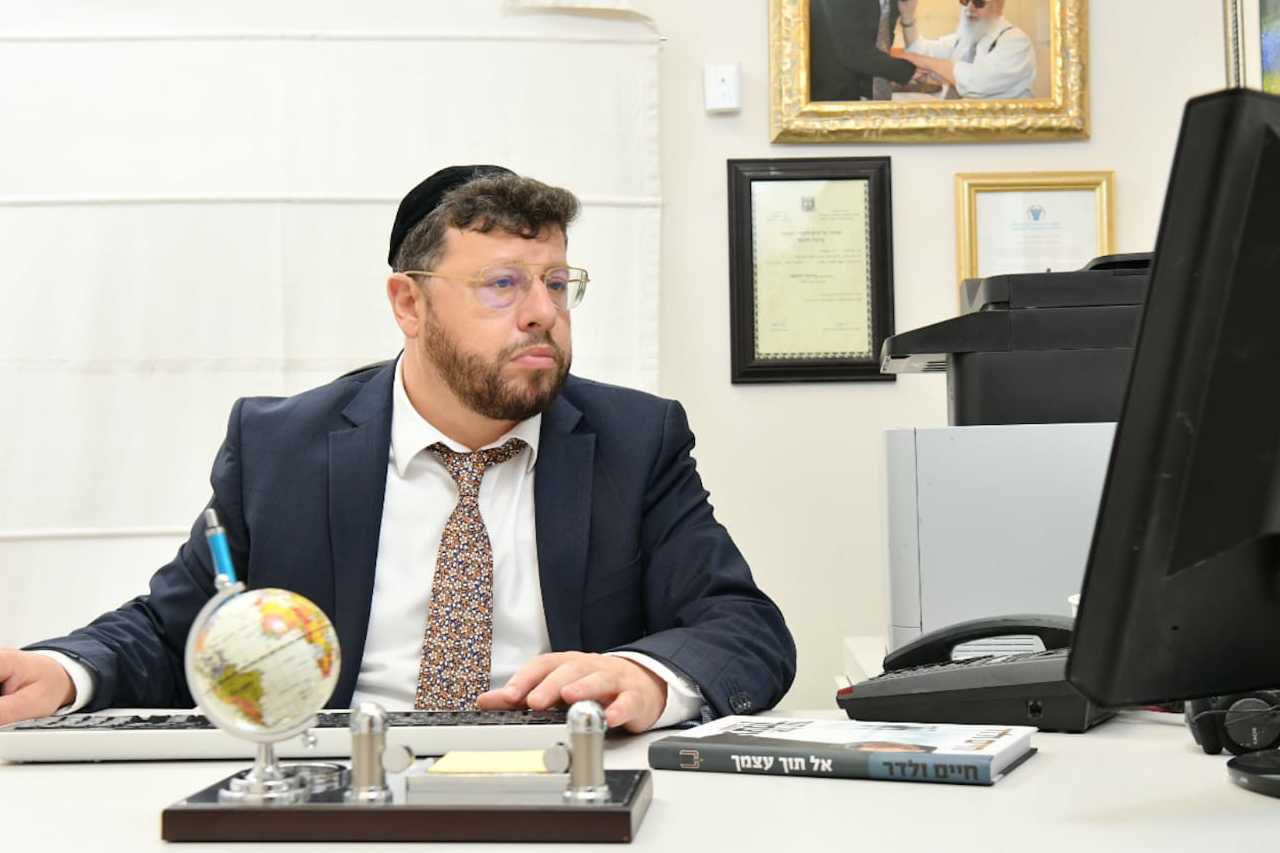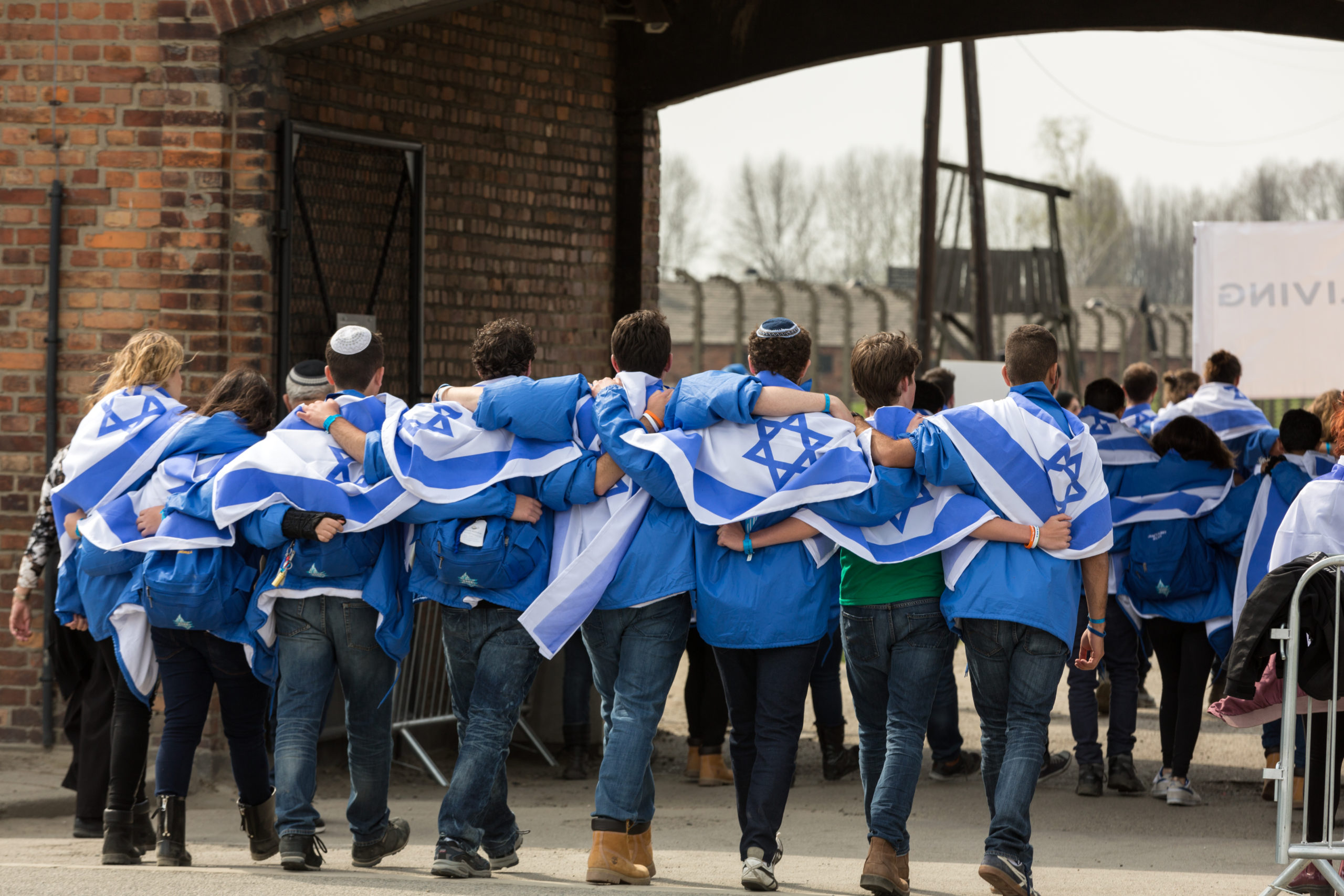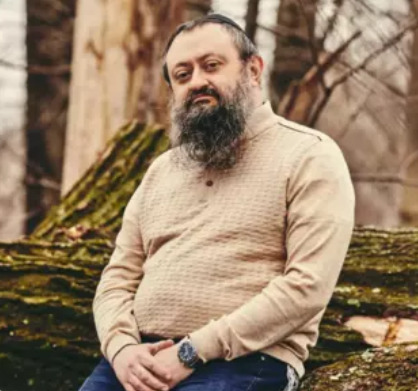THE CULTURE OF THE THIRD TEMPLE
כ״ו בטבת ה׳תשפ״ב (דצמבר 30, 2021)

As on every 19th of the Hebrew month, I ascended the Temple Mount last week. It’s over two decades since I began this custom, and each ascent turns out differently. Each is an experience which mixes a spiritual high with political mortification and humiliation.
In the very heart of Jerusalem, capital of Israel, there is a place which, despite the law, has become ex-territorial. Here, you will find no writing in Hebrew, no flag, no sign of municipal bylaws. Here, in this place, the State of Israel and its laws, remain conspicuously absent.
Any Jew wishing to ascend to Judaism’s holiest place, a place mentioned in the Bible hundreds of times, where both First and Second Temples stood in all their glory, the remnants of which protrude and peek from its cracks, well … any Jew seeking to walk in reverential awe in this place of worship is compelled to undergo a preliminary ‘training,’ warning him against any ritual or symbol of Jewish prayer. The spectacle presented to those ascending the mountain is that of an Islamic archeological garden. You need great imagination and guidance to make the spiritual leap to the true reality glimpsed from this place.
Nevertheless, those who make the effort to dip into a ritual mikva beforehand and arrive at the Mount can expect a special experience difficult to describe in words.
Every time, I descend from here I have the feeling that I have learned something new. A different spirit accompanies me as I descend from the Mount.
Sometimes I meet special people here. Sometimes, somebody volunteers an awesome explanation. Once I had the feeling that I’d managed to distill the prayers in my heart and they burst into the heavens. And once I had the joy of being able to explain and teach others.
But last Thursday, nothing happened. It was merely another visit. And that was also okay. We don’t always deserve to win…
And then, somehow, it happened anyway…
Not on the Mount itself but at the exit from the plaza of the Western Wall.
This time, my ’19th’ of the Hebrew month was a Thursday, so descending from the Mount I passed one of those family processions which comes to the Western Wall on Mondays or Thursdays, to celebrate the joy of the Bar-Mitzvah reading of a beloved member of the family.
The mother and father, uncles and aunts, dressed in their best, carrying baskets of delicacies, their faces radiant, lead the Bar-Mitzvah boy in his new suit under a white canopy to the Western Wall. The men’s heads are covered in a white ‘secular’ kippa that threatens to fly away in the wind; the young women cover their shoulders with scarves. Two men in white robes beat ‘tam-tam’ drums before the procession, while another one or two (probably depending on the fee) blow long trumpets, while the grandmothers add the traditional ‘colololo’ calls.
My personal attitude to the Western Wall is somewhat ambivalent.
The remnant of the Temple (or at least, the western retaining wall of King Herod’s expansion of it) absorbed so many prayers and tears that for over five centuries Jews have gathered there to offer their supplications. After the Six Day War the Western Wall became a substitute for the real thing.
Immediately after the war, bulldozers demolished the Mughrabi neighborhood adjacent to the Western Wall, to clear a large plaza where the longings for the Temple could be syphoned away and to where the multitudes of Jewish people who had ascended to Jerusalem could be enthusiastically re-directed.
What had been the closest place to the Temple, the Western Wall, the point where Jews were permitted to come – but no further – and the point where they prayed, suddenly became a kind of substitute when it had become possible to continue the ascent to the holy place itself.
To remove any doubt, halakhically, by Jewish law, there is no difference between the sanctity of the Western Wall and the sanctity of any synagogue in Jerusalem’s Old City. The Western Wall is certainly a holy place in sentiment, but it is not halakhically holy. True holiness is up on the Mount.
In 1967, when the Mount was finally liberated after 1893 years of foreign occupation, the liberators had lost the consciousness of Sanctity and Temple.
Zionism was incapable of absorbing the significance of the Mount. On the contrary, the new tidings, the messages of the connection between sacred and mundane, physical and metaphysical, were in stark contradiction to the enlightened principles of separation adopted by the new modern nation-state, the state that Jews built according to European models.
The secular aspiration to escape ‘all that Vatican stuff’ (a nickname that Moshe Dayan gave Jerusalem’s Old City while trying to persuade Eshkol’s government not to liberate it in the Six Day War) found itself loyal allies amongst, surprisingly, both ultra-Orthodox and religious groups.
Some groups wished to continue the secular separation between mundane and sacred, and other groups wished to continue the religious separation between sacred and mundane.
The Rabbinate issued a ‘ruling’ that Jews are forbidden to ascend the Mount; whilst the secularists gave away the keys to the Mount to the Muslim Waqif. The Jewish masses were re-directed to the Western Wall. Thus everybody, Muslims, secular Jews and religious Jews seemed to be satisfied.
So that’s why my attitude to the Western Wall is ambivalent.
I’m very respectful on the one hand but try not to pray there when just above is the truly holy place. By the grace of the Creator, the Mount was returned to our people in the Six Days of miracles and salvations. It is the place where, in our iniquities, we have turned our backs on the Creator as though we have no further desire for God. “Keep your great gift,” we seem to say. “We are quite happy with the wrapping!”
It seems that the patience of our Father in heaven is wearing thin. In an article, the national poet of denunciation and faith, Uri Zvi Greenberg wrote, “Whoever rules the Mount rules the land.” As if God tells us: “You gave away my House to strangers; well, what did you imagine would then remain in your own hands?”
Thus the sovereignty of Israel is crumbling right across the country.
But I have no complaints against these warm families for whom the straightforward faith of our Sages throbs in their hearts and who wish to ascend and rejoice with the Creator in the very place where His presence dwells. What they know is the Western Wall – and how endearing it is to see this sight! A thought suddenly crossed my mind.
“I have never seen an ultra-Orthodox family celebrate their son’s bar mitzvah in such a natural way!” … “Indeed, I have never seen national religious people here for such Bar Mitzvah celebrations!” The participants always seem to be the same stereo-type of people: traditional, Sefardi Jews, or in short, ‘Likudniks’…
Suddenly all the lost threads I’ve been trying to explain recently, are connecting.
Religious Jews have synagogues. They, so to speak, don’t need the place where God ‘dwells.’
The secular Jews have given up on it anyway…
He is the Grandfather of the Bar-Mitzvah groom. This Grandfather is part and parcel of your collective identity; obviously he is an inseparable part of your celebrations.
And as I was watching the procession walking or dancing to the Western Wall, to the sounds of drumbeats and trumpets, I thought to myself that this time, I did not have that special experience of the Temple from the Temple Mount, but from these Likudniks dancing along on their way to it. Eventually they too, will arrive.
“Also on the day of your gladness and on your festivals and on your New Moons, you shall sound the trumpets over your elevation-offerings and over your feast peace-offerings; and they shall be a remembrance for you before your God; I am HaShem your God.” [BaMidbar 10:10]
There is something about this particular community which preserves the same mentality which preceded the destruction of the Temple and the exile. Something about this community connects us to the culture of the future Third Temple.
This authentic sharing the day of our gladness with the King of the World, the same consciousness which draws us to come and celebrate before God on our joyous days, something of this still beats in the heart of our people.
It has not been eradicated by secularism.
And it has not been suffocated by religion.
This very essence of connecting both sacred and mundane to one entire culture; this essence which is the be-all and end-all of the Temple; this is the gateway to a renewal of our individuality and our – ever-present –message of our community.






2 תגובות
I very much appreciate your article and sentiment. I grieve the fact that we have become complacent, even satisfied with empty substitutes (broken cisterns that can hold no water) for the Temple. I fear we should be mourning not celebrating special occasions.
I wish to share something my Ima wrote to my sister on Pesach this year as it shares the weight of despair (though you may not share all her beliefs) and I’ll share your article with her to bring in the hope.
I’ve come to understand that these feast days aren’t something to celebrate.
It’s true, I am miserable on these feast days. I don’t even remember to plan a special meal.
I don’t celebrate. I can’t.
I blamed myself for that because I didn’t understand why I couldn’t celebrate til I heard someone speak on this last week.
Think about it, there’s nothing to celebrate!!
Here we are still in the nations, eating defiling food, in the midst of pagans, surrounded with lies, manipulated and enslaved, unredeemed, and without our true identity.
We don’t remember who we are. We forgot Ya. We let His Covenant with His Laws and Commands be stolen from us.
His feasts can’t be kept because there’s no Temple because some Jews gave the Temple Mount to their enemies. They remain powerless. They must pander to their enemies.
It’s convenient and more comfortable to maintain the status quo.
And besides at this point, after all the devastation who can trust Him? He’s become the enemy.
So now we’re at the end of the age and we have not been redeemed. We are not back in the Land.
The Return (after WWII) isn’t ‘His’ return.
We have not been forgiven or taken back into His favor.
What we see all around us are fakes, counterfeits, not worth celebrating. God allowed this.🤷♂️
Truly He turned His back on His Land and on His ppl.
Because this is our condition how can I celebrate? Only ignorance is bliss.
I see this and it’s a cause for mourning. Someone has to mourn over our loss.
Someone has to see it and bear the burden.
Celebrate? No.
I can only mourn our losses.
The loss of our birthright under The Covenant, and our Identity as His chosen people, and the great delay of our Redemption and Return to the The Land, restored .
Here we stand, naked and afraid, blind, powerless victims in pagan nations, defiled, because we turned our back on God.
He wasn’t worth the effort.
But to me He is.
So I bear the burden of our great loss and I mourn. 😩
I wanted to give this article 5 stars but Im not sure why I wasn’t able to. I thought this was an excellent article